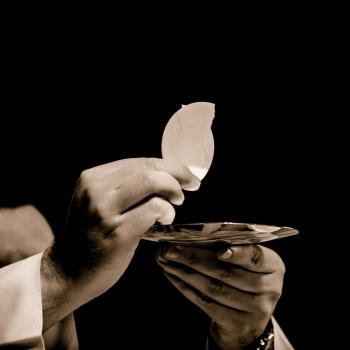 There are more than enough articles, books, and websites out there offering guidance on the practice of living in the moment, or awareness. But a good deal of that literature never asks the most important questions: Aware of what, why, and to what end?
There are more than enough articles, books, and websites out there offering guidance on the practice of living in the moment, or awareness. But a good deal of that literature never asks the most important questions: Aware of what, why, and to what end?
Some will respond, of course, that to ask that set of questions undermines the practice of awareness from the get-go. We should be open to whatever may present itself in the moment. That’s a fair criticism — to a point. But it is also the kind of criticism that fails to grapple with the truth that is inherent in the parable Jesus tells in Luke 11:24-26:
‘When an unclean spirit goes out of someone it wanders through waterless country looking for a place to rest, and not finding one it says, “I will go back to the home I came from.” But on arrival, finding it swept and tidied, it then goes off and brings seven other spirits more wicked than itself, and they go in and set up house there, and so that person ends up worse off than before.’ (Jerusalem Bible)
Whatever the original point of the parable’s application may have been — and there is some debate on that score — this much is clear: From a Jewish and Christian perspective neither the moments of our lives, nor the spiritual disposition with which we approach them are utterly neutral. Or to put it another way: nature abhors a vacuum — especially spiritual vacuums.
From the vantage point of Christian spiritual practice, then, being present is about being present in the moment to the presence of the triune God. In that way, and in that way alone, is the meaning of any moment made clear to us.












